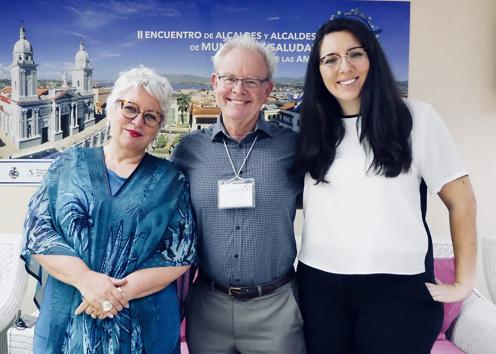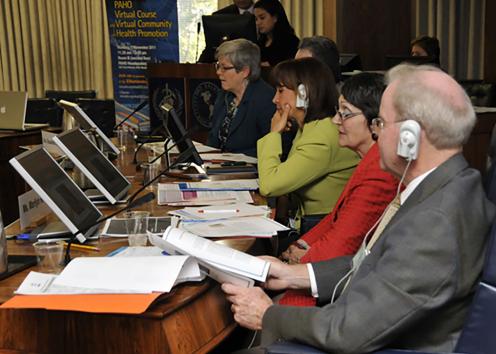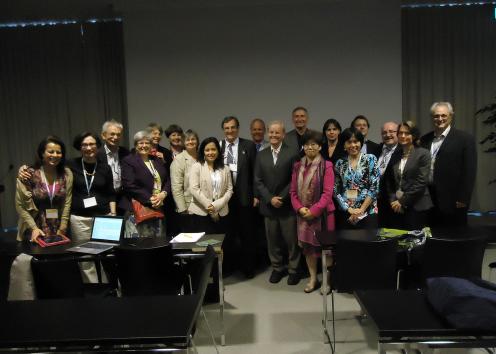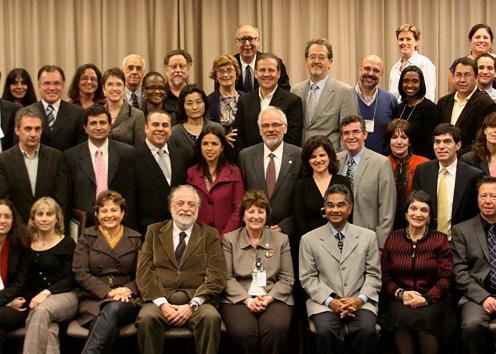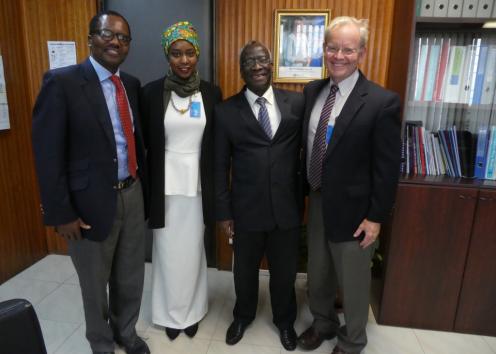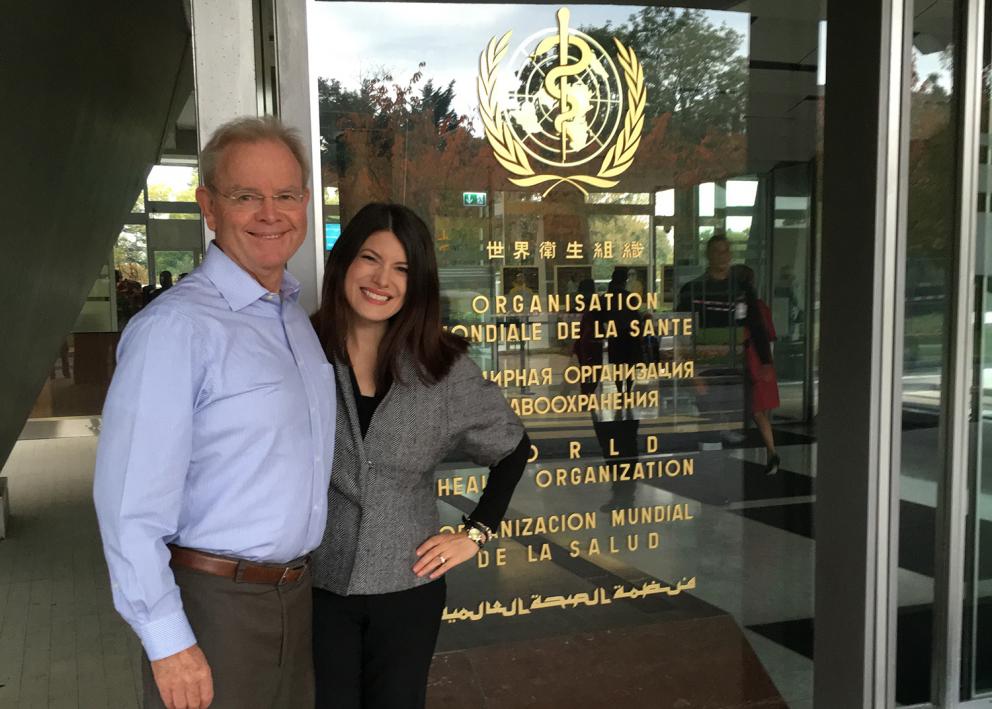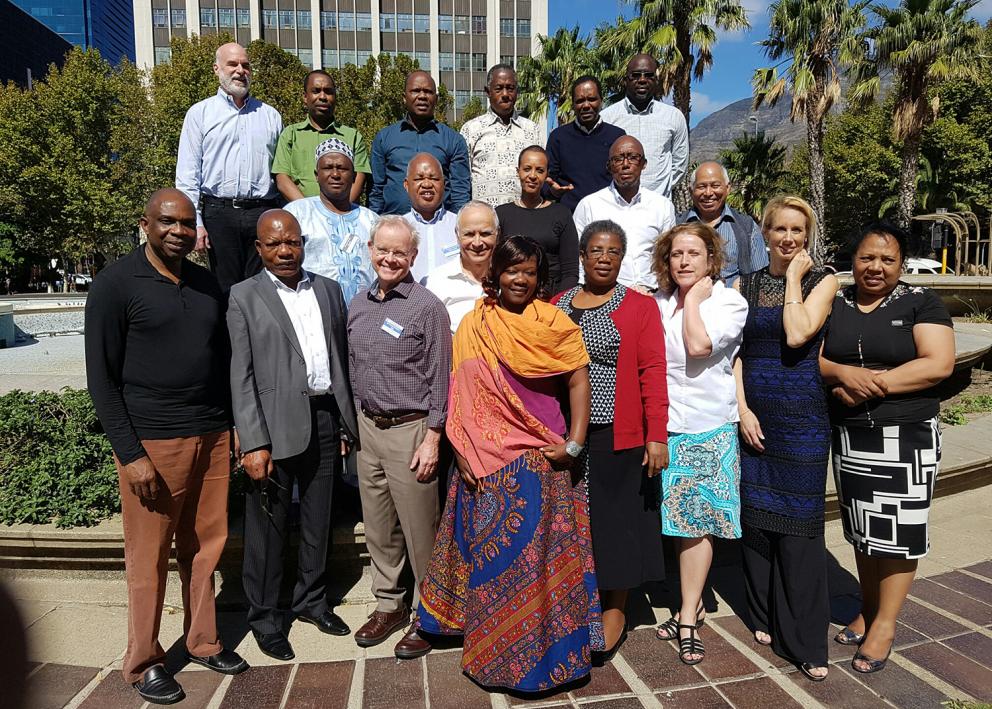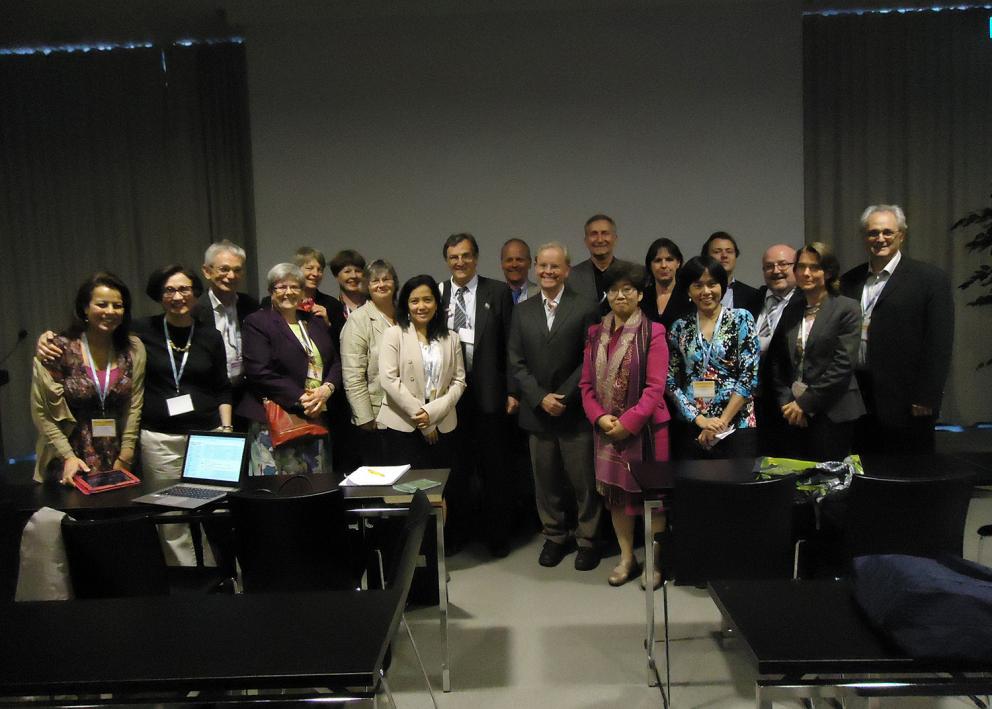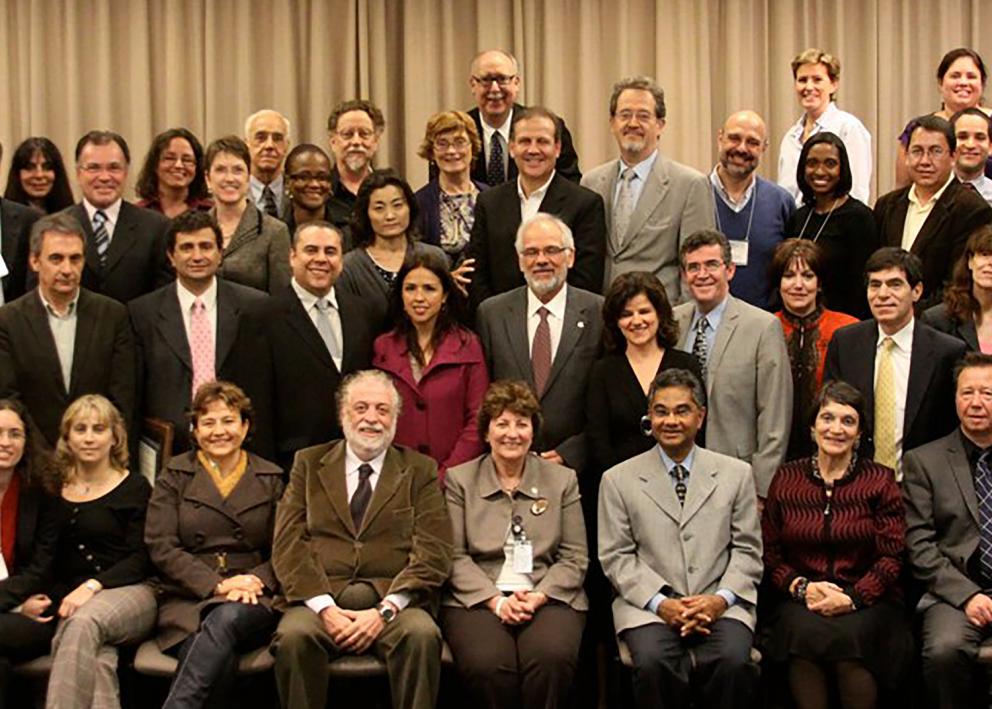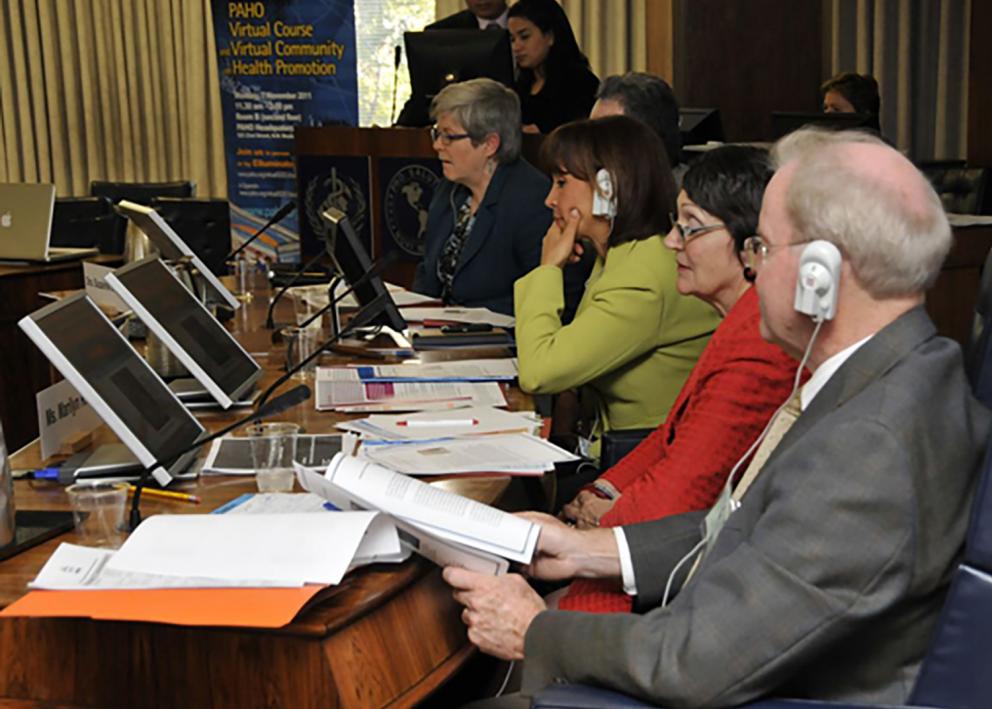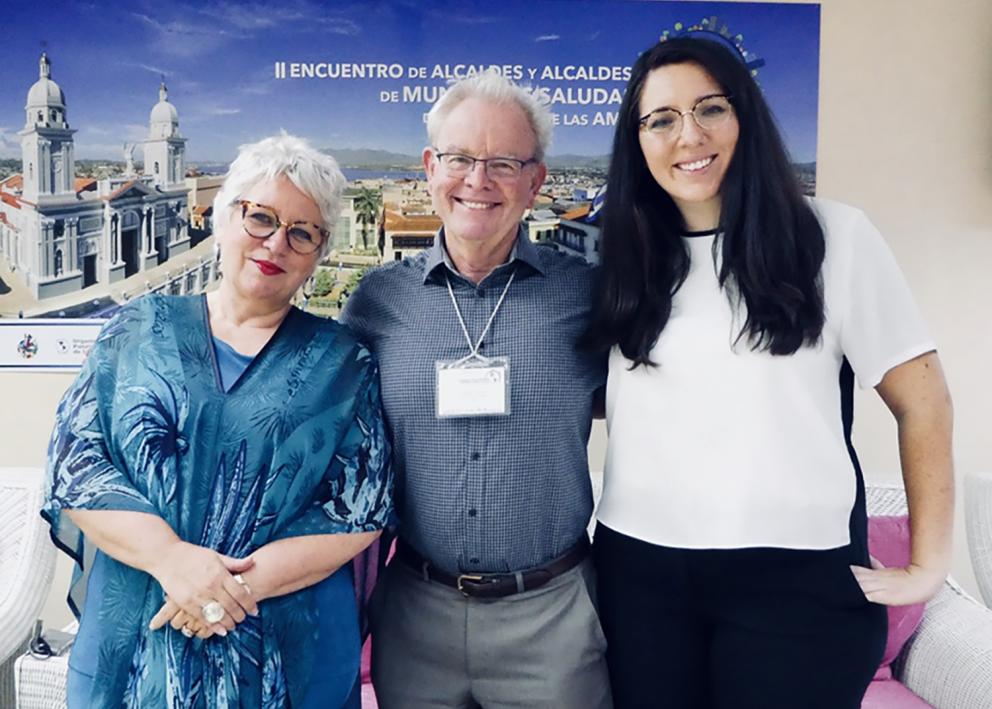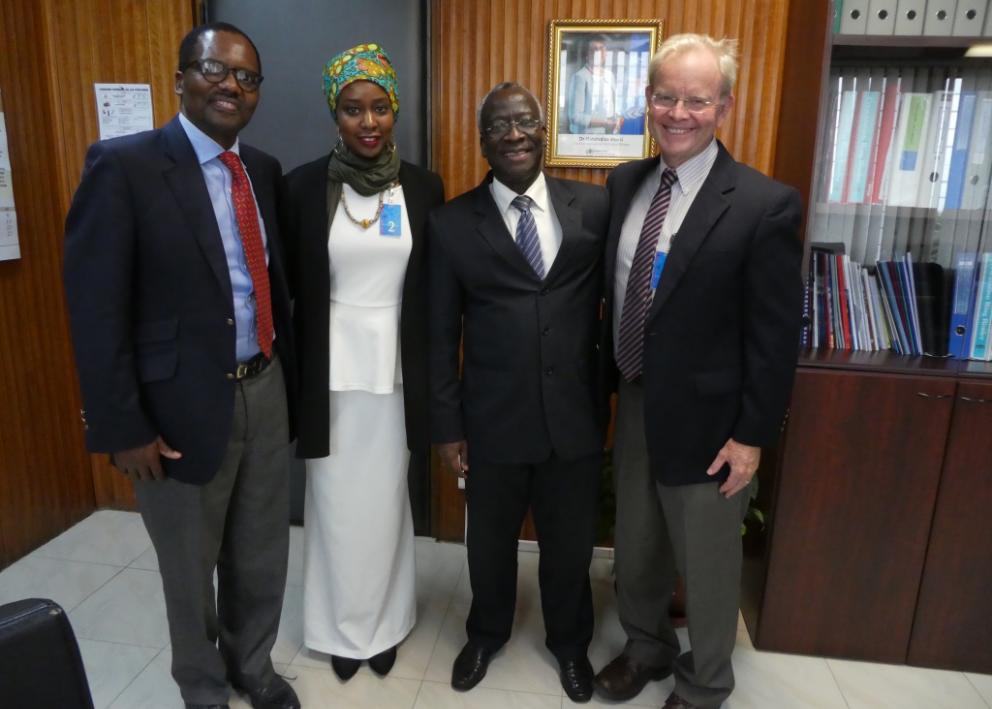World Health Organization Collaborating Centre for Community Health and Development, at the University of Kansas (2004-ongoing)

Promoting Community Health and Development with Global Partners
Our WHO Collaborating Centre at the University Of Kansas received official designation by the World Health Organization in 2004. Over more than 20 years, the Centre has worked to promote health and development with local and global partners. The WHO CC is part of KU’s Center for Community Health and Development.
As a WHO Collaborating Centre, we work closely with partners at the World Health Organization’s Headquarters (Geneva) and at WHO Regional Offices—including those from the WHO Regional Offices— for the Americas/Pan American Health Organization (Washington, DC) and the WHO Regional Office for Africa (Brazzaville, Congo).
For more information, contact Dr. Stephen Fawcett (profile), Co-Director, WHO Collaborating Centre (email: sfawcett@ku.edu) or Christina Holt (profile), Co-Director, WHO Collaborating Centre (email: cholt@ku.edu).
Mission and Objectives of the WHO Collaborating Centre at KU
OUR MISSION: Promote community health and development through capacity building, participatory research, and co-learning in a global community.
OUR OBJECTIVES:
- Build capacity for community health and development locally and globally using expanded resources of the Community Tool Box (CTB).
- Use participatory research methods to expand the evidence base for how communities create conditions that promote health and health equity.
Working in collaboration with partners, we contribute to local and global efforts to promote health, development, and equity.
Some Projects and Accomplishments of KU's WHO Collaborating Center for Community Health and Development
- WHO Community Engagement Toolkit. At the request of WHO-Headquarters/ Health Promotion Unit, our WHO CC is developing a Toolkit to strengthen participation in collaborative action to promote health and well-being for all. Initial field tests were conducted with WHO Regional Office and country partners in Douala, Cameroon and Khulna, Bangladesh. After more field testing and refinement, we anticipate global release of this Toolkit by WHO in November 2026.
- Participatory Monitoring and Evaluation. At the request of the WHO Regional Office for Africa (Brazzaville, Congo), our WHO CC built capacity of African countries to monitor, evaluate, and systematically reflect on their country-level response to the COVID-19 pandemic. In collaboration with country partners, we developed case studies that examined factors that enabled or impeded the response, lessons learned, and recommendations for improvement. Published case studies using this participatory monitoring and evaluation system included those in: Kenya, Gabon, Senegal, and overall lessons learned from these participatory evaluations.
- Equity Lens Protocol. Our WHO CC developed and field-tested an Equity Lens Protocol to guide adjustments in the COVID-19 response to minimize harms for vulnerable populations. Created in collaboration with the WHO Regional Office for the Americas/Pan American Health Organization, this resource was shared with partners in the Americas and disseminated through the Community Tool Box. Read more about it in this example on the Community Tool Box website.
- African Health Action Toolkit. In collaboration with the WHO Regional Office for Africa, we developed and launched the African Health Action Toolkit . This mobile-friendly Toolkit was designed to build capacity for addressing social determinants of health and to advance the Sustainable Development Goals.
- Healthy Cities Action Toolkit. In collaboration with the WHO Regional Office for the Americas/PAHO, we developed and launched the Healthy Cities Action Toolkit. The goal of this Toolkit is to provide guidance for municipalities and communities to create conditions for health and equity. This mobile-friendly tool is available in Spanish as well as English.
- Western Pacific Community Engagement Toolkit. In collaboration with the WHO Regional Office for the Western Pacific, we developed the Western Pacific Community Engagement Toolkit . The aim was to help build capacity for community engagement.
- Monitoring and Evaluation of the Ebola Response. In collaboration with the WHO Regional Office for Africa, our WHO CC supported monitoring and evaluation of the Ebola response effort in selected communities in Liberia. This led to several case studies examining efforts to bend the curve with the Ebola Virus Disease outbreak in 2014-2015. A published case study is available here at DOI.org .
- Guide for Documenting Health Promotion Experiences. In collaboration with the Pan American Health Association and other regional partners, we contributed to the development and launch of the PAHO Guide for Documenting Health Promotion Experiences.
- PAHO Virtual Course on Health Promotion. We contributed to the development and launch of the PAHO Virtual Course on Health Promotion, a collaboration among the Pan American Health Organization and regional partners.
- WHO Framework for Community Engagement. Our WHO CC contributed to the development of the WHO Framework for Community Engagement (pdf), a collaboration with the WHO Headquarters’ Health Systems and Innovations Cluster and partners.
- Collaborative Action on Sustainable Development Goals. We developed a platform for supporting collaborative action on the Sustainable Development Goals by addressing social determinants of health. A collaboration with the WHO Headquarters’ Social Determinants of Health unit, this platform was used to enhance collaboration and coordination among those working on SDH, health in all policies, and SDGs.
- Action Agenda for Community Empowerment. In collaboration with colleagues at the 7th Global Conference on Health Promotion in Nairobi, our WHO CC supported developing an action agenda for community empowerment.
- Global Capacity Building Using Translations of the Center’s Community Tool Box. In 1995, our KU Center for Community Health and Development launched the free and open-source Community Tool Box. Used by nearly six million unique users in over 200 countries, the CTB contains over 7,000 pages of practical information for community assessment, strategic planning, intervention, evaluation, advocacy, and sustaining the effort. Our KU WHO Collaborating Centre has extended the global reach of this resource through language translation, including:
- Translation of the Community Tool Box into Spanish
- Translation of the Community Tool Box into Arabic
- Translation of the Community Tool Box into Farsi
- Note: We aspire to offer the CTB in French and other major languages
WHO Collaborating Centre Co-Directors/ Team
- Profile: Dr. Stephen Fawcett Select to follow link
- Profile: Christina M. Holt Select to follow link
- Profile: Reilly Fitzpatrick Select to follow link
- Profile: Dr. Jerry Schultz Select to follow link
- Profile: Dr. Jomella Watson-Thompson Select to follow link
- Profile: Dr. Vincent Francisco Select to follow link
WHO Collaborating Centre Fellows
These colleagues help support the mission of the WHO Collaborating Centre at Kansas University.
Selected WHO Centre Products
- Website: African Health Action Toolkit Select to follow link
- Website: Healthy Cities Action Toolkit Select to follow link
- Website: Western Pacific Community Engagement Toolkit Select to follow link
- Equity Lens Protocol - December 2021 (pdf) Select to follow link
- Sensemaking Protocol for COVID-19 Cases and Response Activities - October 2020 (pdf) Select to follow link
